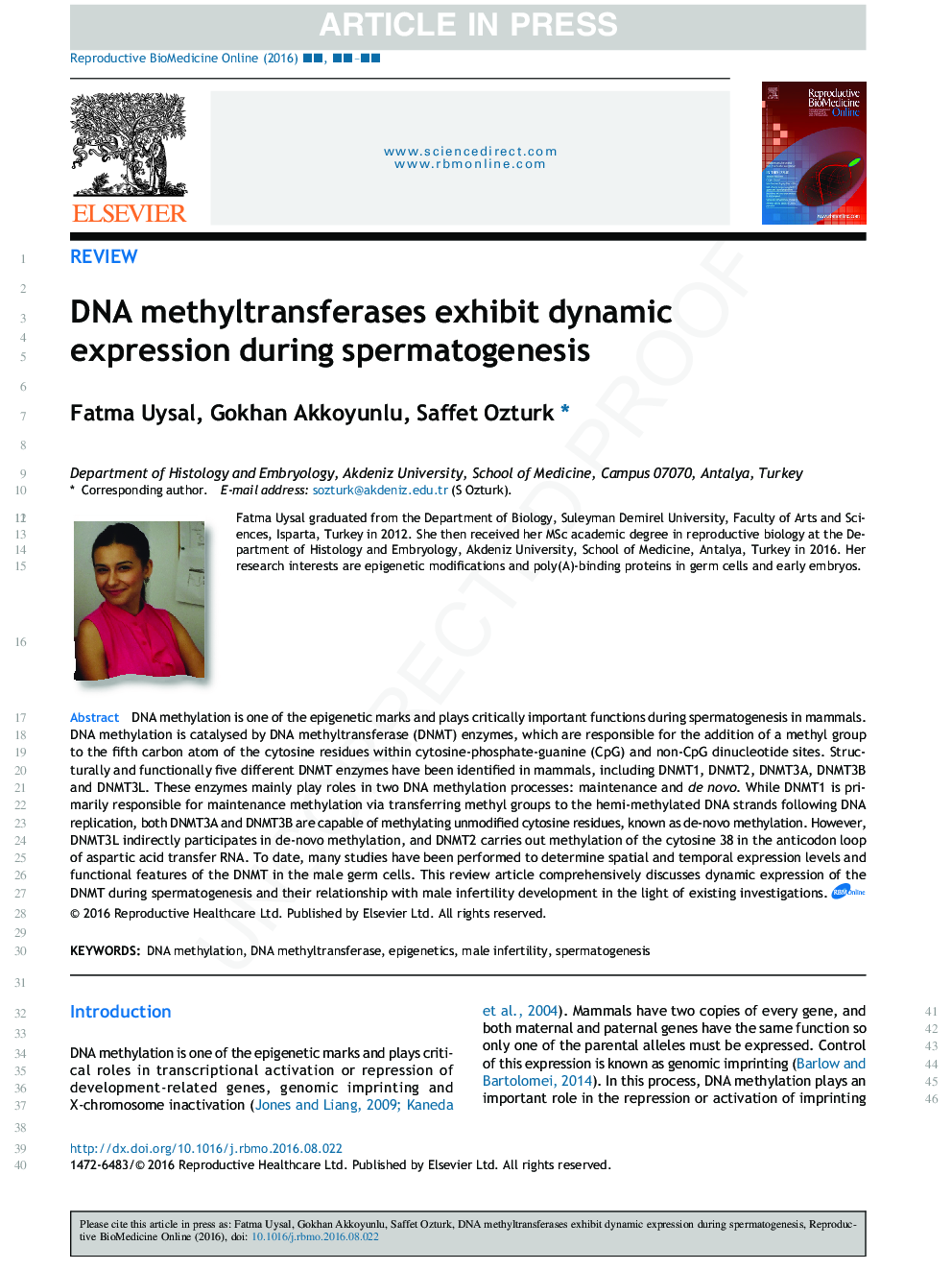| Article ID | Journal | Published Year | Pages | File Type |
|---|---|---|---|---|
| 5696828 | Reproductive BioMedicine Online | 2016 | 13 Pages |
Abstract
DNA methylation is one of the epigenetic marks and plays critically important functions during spermatogenesis in mammals. DNA methylation is catalysed by DNA methyltransferase (DNMT) enzymes, which are responsible for the addition of a methyl group to the fifth carbon atom of the cytosine residues within cytosine-phosphate-guanine (CpG) and non-CpG dinucleotide sites. Structurally and functionally five different DNMT enzymes have been identified in mammals, including DNMT1, DNMT2, DNMT3A, DNMT3B and DNMT3L. These enzymes mainly play roles in two DNA methylation processes: maintenance and de novo. While DNMT1 is primarily responsible for maintenance methylation via transferring methyl groups to the hemi-methylated DNA strands following DNA replication, both DNMT3A and DNMT3B are capable of methylating unmodified cytosine residues, known as de novo methylation. However, DNMT3L indirectly participates in de novo methylation, and DNMT2 carries out methylation of the cytosine 38 in the anticodon loop of aspartic acid transfer RNA. To date, many studies have been performed to determine spatial and temporal expression levels and functional features of the DNMT in the male germ cells. This review article comprehensively discusses dynamic expression of the DNMT during spermatogenesis and their relationship with male infertility development in the light of existing investigations.
Related Topics
Health Sciences
Medicine and Dentistry
Obstetrics, Gynecology and Women's Health
Authors
Fatma Uysal, Gokhan Akkoyunlu, Saffet Ozturk,
